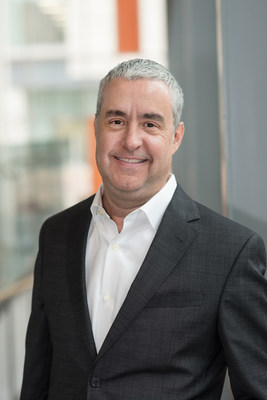René Salazar has joined the Broad Institute of MIT and Harvard as its chief equity officer, a newly created position.
Former assistant dean for diversity at University of Texas Dell Medical School, Salazar will oversee Broad’s diversity, equity, and inclusion efforts |
| [13-October-2021] |
|
CAMBRIDGE, Mass., Oct. 13, 2021 /PRNewswire/ -- René Salazar, former assistant dean for diversity and professor of internal medicine and medical education at the University of Texas at Austin Dell Medical School, has joined the Broad Institute of MIT and Harvard as its chief equity officer, a newly created position. Salazar is also a member of the Broad Institute Executive Leadership Team. "René will help guide us in bringing an equity lens to recruitment and also to our ongoing efforts to foster deeper inclusion and engagement within the current Broad community," said Todd Golub, director of the Broad Institute. "René is an expert in creating successful programs that result in positive institutional change and is already building strong relationships across the Broad community. I am delighted to partner with him as he harnesses the momentum and hard work already underway at Broad to steward a more inclusive community. Diversifying both our scientific and administrative staff will no doubt make the science stronger." "I am thrilled to be a member of an institution that is so committed to inclusion at every level," Salazar said. "I look forward to bringing together everyone who is working to build an inclusive community at Broad. In particular, I look forward to having open conversations about how racism and other forms of oppression impair science and, most importantly, how to help find solutions." Raised in Texas, Salazar earned his medical degree from the Joe R. & Teresa Lozano Long School of Medicine at University of Texas Health San Antonio. He completed his internship and residency in internal medicine at the University of California, San Francisco before completing a one-year Latino health disparities research fellowship. Salazar served as the chair of the UCSF Department of Medicine's Residency Diversity Committee and the director of diversity for the Office of Graduate Medical Education from 2007 to 2016, where he led efforts to recruit residents and clinical fellows from underrepresented backgrounds. Salazar also developed and launched an unconscious bias education program to mitigate unconscious bias among UCSF faculty, staff, students, and trainees in clinical settings. Salazar also led a recent study, published in The American Journal of Surgery, that describes how patients are unconsciously biased toward believing that surgeons are men. In 2016 he joined UT Austin Dell Medical School as assistant dean for diversity, where he established Dell Med's first office of Diversity, Equity, and Inclusion and led campus-wide DEI efforts. In this role, he launched programs to increase the recruitment and retention of students, residents, and trainees from historically marginalized communities, and launched mentorship programs for underrepresented students at University of Texas at Austin and other local universities. He also established several cultural identity-based affinity groups and pipeline programs to expose middle and high school students from underrepresented communities to the health sciences. In his equity work, Salazar draws from his clinical experiences as a general internist working with patients from diverse communities in Austin. "This work has to be top-down and ground-up, and I'll work with leadership to build the skills to meaningfully move this work forward," Salazar said. "At the same time, we need to continue to break down barriers and promote a sense of belonging for scientists and staff of color, women, and LGBTQIA+ individuals, in addition to those from other groups that have historically been underrepresented in the biomedical sciences." At Broad, Salazar leads the Inclusion, Diversity, Equity, and Allyship (IDEA) Office, which will assess, prioritize, and improve diversity and inclusion by partnering with leadership, administration, the scientific community, and affinity groups across the Broad. Salazar will also help organize Belonging@Broad, a daylong, virtual, community-wide symposium to be held on October 18th, 2021 that will focus on intersectionality and how different identities intersect to create privilege and disadvantage. Anyone who is part of the Broad community can attend lectures and panels as well as participate in concurrent workshops and breakout sessions — all with the goal of building a more inclusive culture. "I am delighted to work together with René to make the Broad more inclusive and to foster a deeper sense of belonging throughout the entire community," said Frances Brooks Taplett, chief people officer at Broad. "We will be working together to bring more diversity across all cohorts at the institute, in both the sciences as well as administration." About Broad Institute of MIT and Harvard Founded by MIT, Harvard, Harvard-affiliated hospitals, and the visionary Los Angeles philanthropists Eli and Edythe L. Broad, the Broad Institute includes faculty, professional staff and students from throughout the MIT and Harvard biomedical research communities and beyond, with collaborations spanning over a hundred private and public institutions in more than 40 countries worldwide.
SOURCE Broad Institute of MIT and Harvard |






